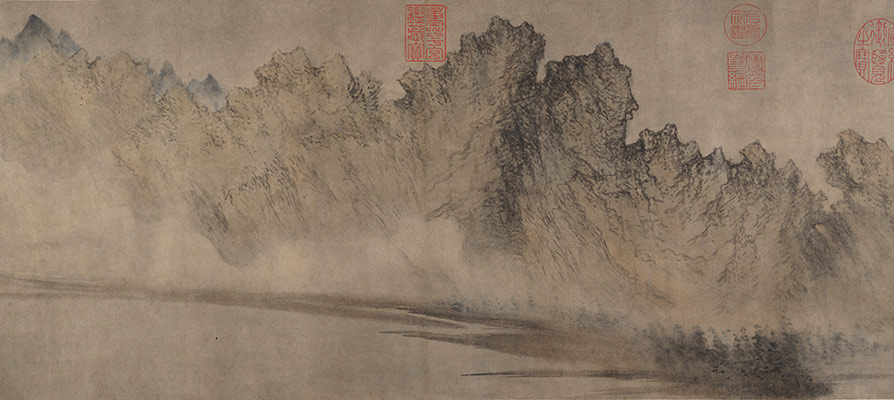Daoism is a philosophical and religious tradition from ancient China, whose most know work it’s the Dao De Jing, probably wrote by Laozi between 350-250 b.C. The legend says that Laozi was asked by frontier guard to share his wisdom, so Laozi wrote the teachings that are at the Dao De Jing. But maybe the manuscript it’s a collection of proverbs from many authors and Laozi (the “Old Master”) wasn’t a real historical figure (LaFargue, 1995, p. 14)
Laozi uses the word Dao to refer to an ultimate reality that produces all things. To understand that, we have to consider that language is used to represent things and for communicating with each other, but language can block the understanding from reality, as according to Cheng (2004, p. 145): “there is a larger presuppose reality, which always goes beyond the reference and use of any specific language”. So, when Laozi uses the word Dao he is trying to refer to a reality that is beyond the usual phenomenal world. He wrote that the Dao that can be spoken about it isn’t the constant Dao (usually translated as “The Way”) that it’s presupposed by any kind of language, so the word Dao is used as a metaphor (Cheng, 2004, p. 146).
The nature of the Dao is where all actions came from and are manifestations of the spontaneous, the natural, and the effortless (Cheng, 2004, p. 153). Hence, a virtuous action is in harmony with the Dao and has it same characteristics: natural, spontaneous and effortless. For Laotzi, a person with the superior virtue is who doesn’t has the intention of being virtuous, but only understand and follow the nature of the Dao. One core concept in Daoism is Wuwei (non-action), that it ain’t doing nothing, but restoring the nature of Dao and letting it operates. The virtue (De) is rooted in the nature of the Dao. Laotzi compares virtue with water, that nourishes a lot of things and occupies places that are despised by people, as the virtuous person for Laotzi, that put himself beneath the others. To reach a state of mind that is in harmony with the Dao, described by Laotzi, one has to diminish his desires onto outer things and also diminish irrelevant knowledge that preoccupies the mind.
For other Daoist philosopher, Zhuangzi, the agent that is performing a virtuous action has to also do it in a ease, effortless, naturalness and joyfulness way (Huang, 2010, p. 1050). In his manuscripts, he describes stories of craftsmen that learned how to be very skillful in their works, following the flow of the Dao, as the story of an Wheelwright that can’t cut a wheel neither too slowly nor too quickly, only in the right speed; or the story of a Cook that carves an ox with his intuition, following his natural structure.
But can we interpret from Zhuangzi, that someone could be in harmony with the Dao while killing other one, if he is doing this action in a effortless and joyfulness way? For Huang, the answer is no: “In my view, these knack stories tell us how to do things well if we know what things we ought to do, but they do not tell us what things we ought to do” (2004, p. 1056). In other story, Zhuagzi tells about a bird that was received by Prince with wine, music and ox meet. Dazed, the bird died. The prince killed the seabird because he was “treating the bird as he would like to be treated and not as a bird would like to be treated” (Zhuangzi apud Huang, 2004 p. 1056). In other story, Zhuangzi states: “If a human being sleeps in a damp place, the person will have a pain in his or her loins and some paralysis. Is that true of eels? If a human being lives up in a tree, the person will be frightened and tremble. Is that true of monkeys? Which of the three knows the right place to live?”. For Huang (2004, p. 1061), the ethics contained in this stories is a ethic of difference, implying that one should respect the natural disposition of the others, not imposing values and therefore measuring the moral appropriateness of an action by the view of the patient, not the agent (Huang, 2010, p. 1067).
Daoism is a very rich and profound philosophy, that can give the West a good contribution to the studies of virtue and other fields of study. The poetic, enigmatic and sometimes paradoxical way of writing about the Dao and it’s Virtue makes it complex and interesting. And is a mutable philosophy, therefore, will never exhaust the possibility of actualizations and interpretations.
References:
HUANG, Yong. Respecting different ways of life: A Daoist ethics of virtue in the Zhuangzi. The Journal of Asian Studies, v. 69, n. 4, p. 1049-1069, 2010.
CHENG, Chung‐ying. Dimensions of the Dao and Onto‐Ethics in Light of the DDJ. Journal of Chinese Philosophy, v. 31, n. 2, p. 143-182, 2004.
CHUANG-TZU; MERTON, Thomas. A via de Chuang Tzu. 7.ed. Petrópolis: Vozes, 1994.
LAO-TZU; WILHELM, Richard. Tao-Te King: o livro do sentido e da vida . 9. ed. São Paulo: Pensamento, 2001.
LaFarge, Michael. Introdução. IN: TSAI, Chih Chung. Tao em quadrinhos. 3. ed. Rio de Janeiro: Ediouro, 1997.
The views and opinions expressed in these articles are those of the authors and do not necessarily reflect the official policy or position of the AdmEthics Group




